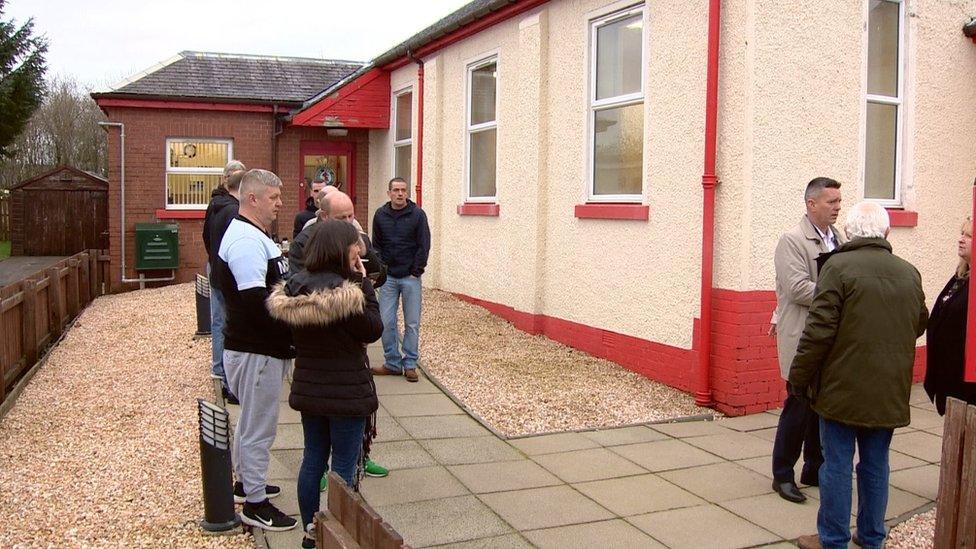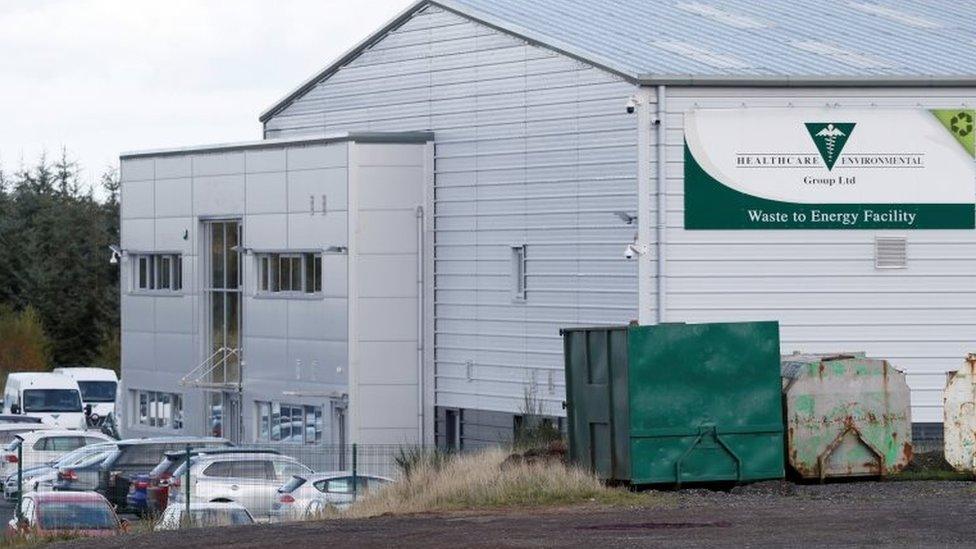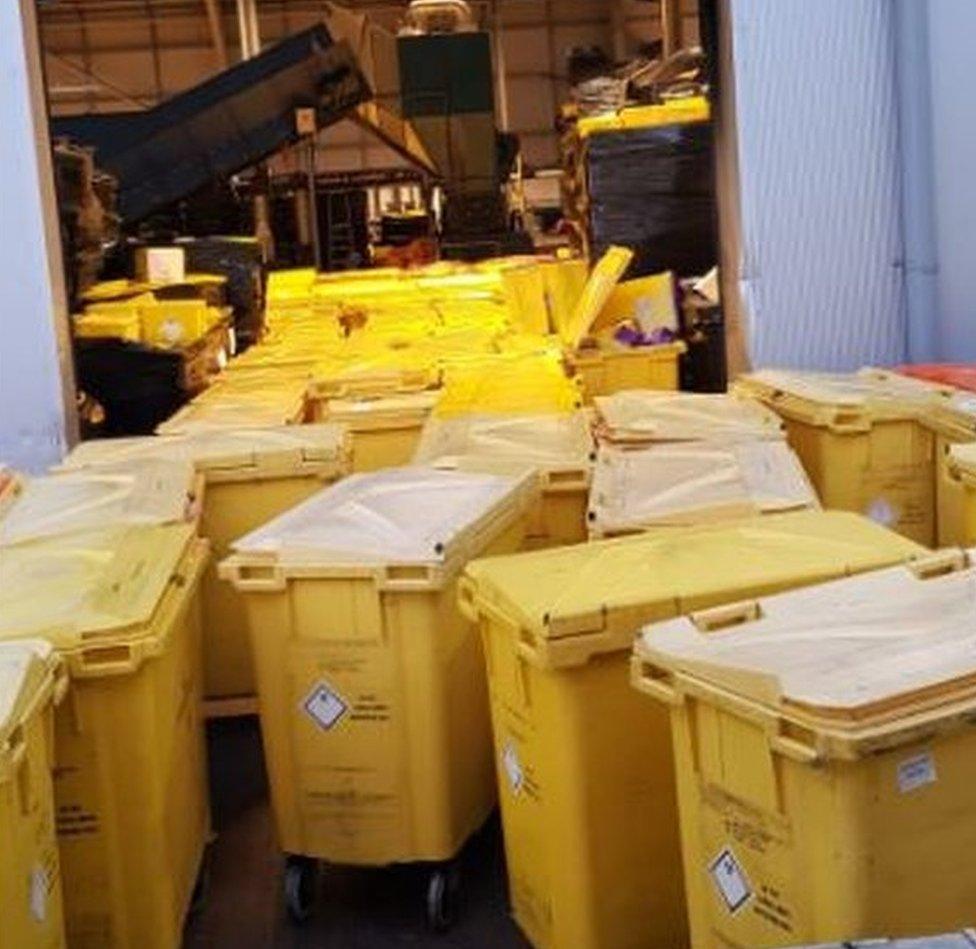Q&A: What now for staff at clinical waste firm HES?
- Published

Former staff of a Lanarkshire-based clinical waste firm have told BBC Scotland they are turning to food banks because they are unable to claim lost pay.
Healthcare Environmental Services (HES) in Shotts served all its staff with redundancy notices a week ago.
The firm lost its contracts with NHS Scotland and 17 NHS trusts in England after it was found to be stockpiling clinical waste.
So what happens now for the failed company and the workers who have lost their jobs?


Former HES staff attended an event with local councillors held in Shotts on Thursday
Who is helping the former HES staff?
A string of public bodies, including North Lanarkshire Council and the government agency Skills Development Scotland, are leading efforts to try and get new jobs for all the affected HES staff.
Are the workers owed any money?
The workers are owed wages which were due on 28 December last year and many are also due overtime payments.
Will they ever see the wages owed to them?

All employees of HES have been told they have been made redundant
It is complicated. Normally when a firm goes bust workers can claim statutory redundancy from the Redundancy Payment Service (RPS), which is run by the UK government and paid for by the UK-wide National Insurance Fund.
The RPS was set up to help to provide a way in which ex-employees could get the money they are owed in a much shorter timescale than waiting for a firm's assets to be sold, but there is a catch.
What is the catch?
The RPS cannot process a claim without a reference number from an insolvency practitioner and the directors of HES have not so far made such an appointment, and failed to answer questions on whether they will do so.
The other issue is whether any insolvency practitioner would actually take on the job.
Why wouldn't an insolvency firm want to take on the job?
In short the problem is the tonnes of clinical waste from private contracts lying at the HES plant in Shotts.
A recent legal test case made clear that meeting environmental regulations should be given priority by liquidators over paying back creditors.

Staff have raised concerns about a build up of waste at the Shotts facility
In addition, the Scottish Environment Protection Agency (Sepa) has said that it will pursue any insolvency practitioner appointed by HES to ensure its enforcement notices over the storage of waste are complied with.
All of this doesn't make the HES job very appealing for the insolvency trade and it may be the case HES directors are struggling to get someone to take on the work.
What happens next for the workers?
If no insolvency practitioner is appointed then one option open to the workers to raise an employment tribunal action against HES, either as a group or individuals, to get a redundancy payout.
If the tribunal rules in their favour then the RPS would consider this ruling as an alternative to a reference number from an insolvency practitioner, and could then award the workers the money they are owed.
And what happens to the waste in the HES plant?
Sepa has said it is monitoring conditions at Shotts and at the firm's other Scottish site in Dundee, adding that it is investigating whether criminal offences had been committed.